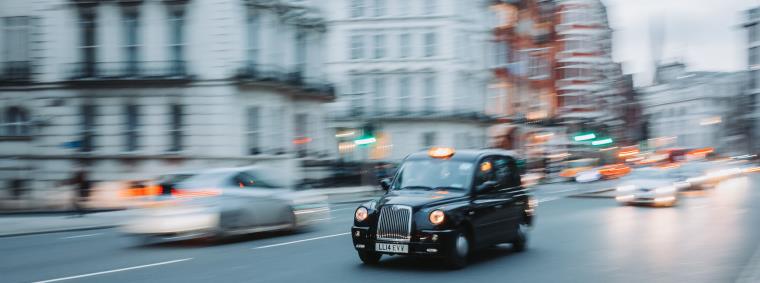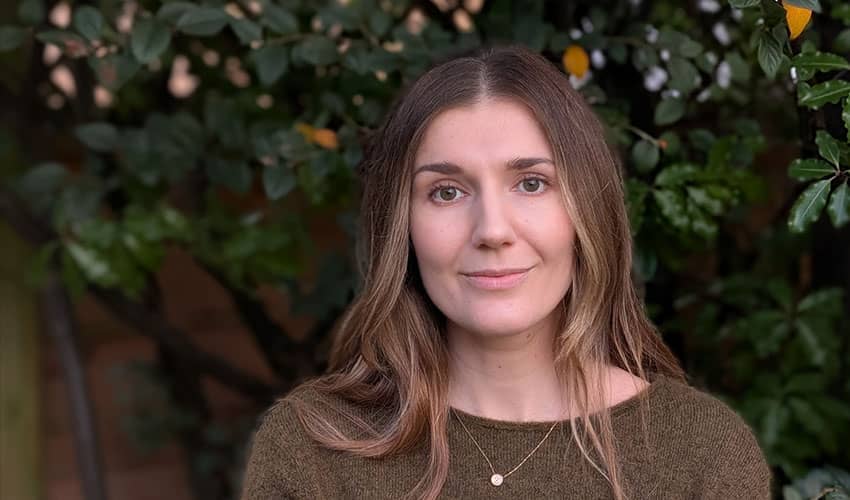Britons more accepting of driving-related risk, UWE Bristol researchers find

Is it acceptable to harm another person? It might depend whether or not there’s a car involved, according to a new study from UWE Bristol and Swansea University researchers. They showed that people have a shared ‘blind spot’ that can make them use different moral and ethical standards when they think about driving cars, compared to other areas of life.
The researchers commissioned an independent polling organisation to ask 2,157 people across the UK a series of questions. Randomly, each person got a set of questions that asked about driving cars or an identical set of questions with one or two words changed so that they asked about the same underlying principles, but didn’t mention driving.
The results showed that people could go from agreeing with an idea to disagreeing with it simply based on whether it was framed as a driving issue or not. For example, 75% of the UK public agreed ‘People shouldn’t smoke in highly populated areas where other people have to breathe in the cigarette fumes’ but only 17% agreed when two words were changed so that the statement was ‘People shouldn’t drive in highly populated areas where other people have to breathe in the car fumes’.
“It is nonsensical to say that making people breathe toxic air is a problem when it comes from a cigarette, but making people breathe toxic air is fine when it comes from a car,” said Professor Ian Walker from Swansea University and formerly of UWE Bristol. “The underlying principle is the same, but people in our study were not using the same standards when they judged the two things.
“We saw something similar when it came to theft. If you leave your ‘belongings’ in the street and they get stolen, only 37% of people think the police should do something about it. But if you leave your ‘car’ in the street and it gets stolen then 87% of people think the police should take action – even though the car is really just one of your belongings.
“These huge differences came from changing just one or two words in the questions. It’s long been suspected that people can slip unconsciously into using different standards when they think about driving, leading them to commit a fallacy known as ‘special pleading’. Our study was intended to reveal this phenomenon and show just how substantial these effects can be.”
A particular reason this matters, say the team, is that it’s not just the general public who have unconscious biases around motoring – it’s also politicians and members of the medical profession who influence public health. When a policymaker automatically assumes that traveling from one place to another is going to involve driving, they might harm public health by trying to make driving easier. In this case, their blind spot might create policies that increase air pollution and make travel more difficult and dangerous for all the people who move by other means – or who might like to.
“If you asked a politician whether a new hospital should be inaccessible to one-fifth of the population, obviously they’d say no,” said Alan Tapp, Professor of Social Marketing at UWE Bristol. “Whereas if you asked that same politician whether a hospital should be built on the edge of town, it’s likely that many wouldn’t see the problem, if they have a form of this mindset we’re looking at. But in practice, having the hospital outside town is not that different from making it inaccessible when a fifth of households don’t have a car.
“We regularly see policy decisions – from the location of amenities to the design of streets – that overlook the needs of people who aren’t driving, often forcing these people to make longer journeys or place themselves in danger for the convenience of people who are driving. We suggest that these shared assumptions demonstrated in our study, which we called ‘motonormativity’, are a big part of the reason that such problems don’t get noticed.”
In their paper ‘Motonormativity: How social norms hide a major public health hazard’, the team say that we are all surrounded by environments that promote motor travel and systematically downplay the negative consequences. These environments range from pelican crossings that make pedestrians wait for permission to cross the road while drivers automatically get a green light, to advertising and media that normalise and excuse antisocial and dangerous driving.
“If all you’ve ever known is a world where the needs of motorists come first, there’s a good chance you’re going to start to understand that is the ‘normal’ or even the ‘proper’ way of things,” said Dr Adrian Davis, Senior Fellow in Behaviour Change and Translational Research at UWE Bristol. “We saw evidence of that here. When we pulled out just the people in our survey who didn’t drive, we saw that even these people were using different standards when the questions asked about driving. Their answers tended to echo what the drivers were saying, meaning it’s not even simple self-interest at work. It’s got to be something deeper, rooted in our culture.”
The researchers end their report by calling on decision makers to start recognising their unconscious biases on this topic, and to put in place systems to make transport decision-making more rational.
“Every decision maker needs to get used to asking themselves ‘What’s the underlying principle we’re considering here, and would I still be happy with it if we were talking about something other than road transport?’”, said Professor Walker. “Perhaps then we might stop doing things that are currently commonplace but actually really problematic when you think about them in more abstract terms, like teaching children they have a responsibility to protect themselves from adults who might hurt them”.
The study is to be published in International Journal of Environment and Health. A preprint of the study is available from https://psyarxiv.com/egnmj
Related news

16 February 2026
UWE Bristol researchers awarded grant to explore impact of asset recovery on offenders
UWE Bristol academics have been awarded funding to explore of the impact of asset recovery on deterring offender behaviour and disrupting crime networks.

10 February 2026
Work by UWE Bristol lecturer features in Government’s National Cancer Plan
Work by a UWE Bristol academic has been included in the Government’s National Cancer Plan.

23 January 2026
On-demand minibus services beneficial in rural areas but face financial challenges, trials suggest
Trials of ‘demand responsive transport’ minibus services boosted connectivity for people in rural and suburban areas, according to a new report produced by UWE Bristol researchers.

18 December 2025
UWE Bristol professor appointed National Institute for Health and Care Excellence CEO
Jonathan Benger CBE, Professor of Emergency Care at UWE Bristol, has been appointed as the new chief executive officer of the National Institute for Health and Care Excellence (NICE).

17 December 2025
Findings revealed from first UK study into experiences of mothers who are survivors of rape pregnancy
UWE Bristol academics have revealed the findings of the first UK-based study of the experiences of mothers who are survivors of rape pregnancy.

11 December 2025
Social media influencer work is far more demanding than it looks, research finds
A study exploring the mental health impacts of social media influencer work has revealed that life online is far more demanding than it appears.

25 November 2025
UWE Bristol experts join film Q&A exploring music and melodrama
Academics will take part in the Cary Comes Home Festival, with a post-screening Q&A exploring music, melodrama and emotional storytelling in classic cinema.

17 November 2025
Urgent reform needed to support ambulance-delivered end of life care, study finds
More than three quarters (78 per cent) of paramedics sometimes fear doing the wrong thing when caring for people in the last year of life, new research has found.

13 November 2025
Bristol’s screen industry experiences “boom-and-bust cycle” after post-pandemic recovery, new research from UWE Bristol finds
New research from UWE Bristol provides detailed insight into Bristol's screen sector.

13 November 2025
New AI research to revolutionise animal welfare
A UWE Bristol research project will combine behavioural science and AI to create technology that understands not only what animals do, but how they feel.

10 November 2025
Lessons from Low Traffic Neighbourhoods will drive better public engagement, study finds
Lessons from Low Traffic Neighbourhoods have informed a new toolkit to improve engagement with the public on challenging local street issues.

06 November 2025
First-of-its-kind study aims to help more people spend their final days at home
A new study will explore how architectural design could support end-of-life care in domestic settings.






